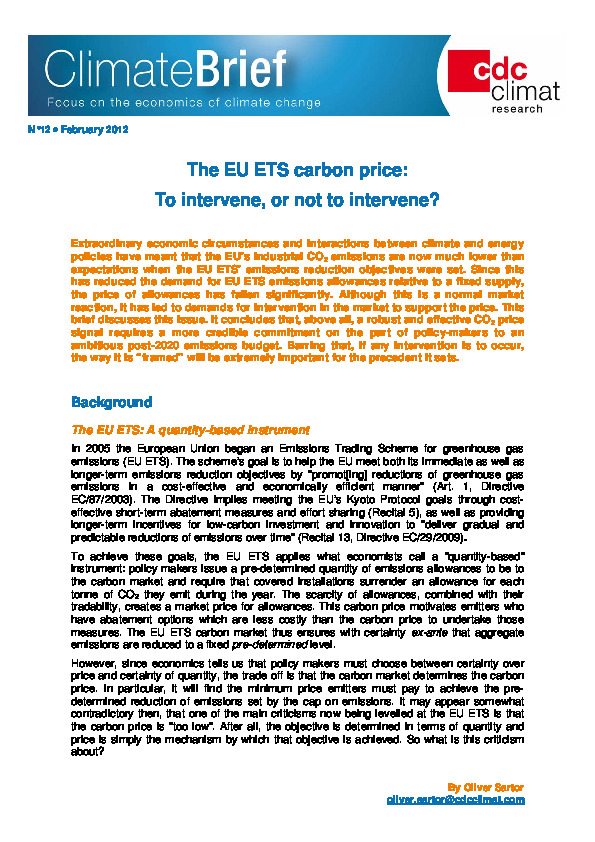The EU ETS carbon price: To intervene, or not to intervene?
Extraordinary economic circumstances and interactions between climate and energy policies have meant that the EU’s industrial CO2 emissions are now much lower than expectations when the EU ETS’ emissions reduction objectives were set. Since this has reduced the demand for EU ETS emissions allowances relative to a fixed supply, the price of allowances has fallen significantly. Although this is a normal market reaction, it has led to demands for intervention in the market to support the price. This brief discusses this issue. It concludes that, above all, a robust and effective CO2 price signal requires a more credible commitment on the part of policy-makers to an ambitious post-2020 emissions budget. Barring that, if any intervention is to occur, the way it is “framed” will be extremely important for the precedent it sets.
